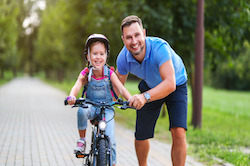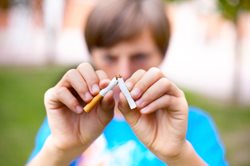Johns Hopkins All Children’s mission is to improve the health of all children in our community through treatment, research, education and advocacy.
Our mission reflects a passion for patient care, research and the training of future health professionals. It extends beyond the hospital walls and our direct care services to include the well-being of the communities we serve.
Through forming purposeful partnerships with community-based organizations, we are able to combine interests and expertise for the strategic improvement of program and policy interventions leading to enhanced quality of life for our neighbors.
Community benefit initiatives and programs are intended to improve health in communities and increase access to health care. At Johns Hopkins All Children’s, we address local community health in a number of ways, including:
- Charity care
- Community-building activities
- Community health improvement services
- Education for health professionals
- Financial and in-kind contributions
- Mission-driven health services
- Research
- Subsidized health services
The objectives of community benefit activities or programs include improving access to health services, enhancing public health, advancing increased general knowledge, and relief of a government burden to improve health.
These activities and programs:
- Are available broadly to the public and serve low-income consumers
- Reduce barriers to accessing health services
- Address federal, state, or local public health priorities, such as eliminating disparities in health status among different populations
- Leverage or enhance public health department activities
- Strengthen community health resilience
- Advance general knowledge through education or research that benefits the public
Community Benefit Report Narrative
Unified4Allkids
Unified4Allkids identifies and addresses the most critical pediatric health needs of children in Pinellas County. Johns Hopkins All Children’s created Unified4Allkids as a public-private partnership that includes parents, educators, nonprofit professionals, community leaders and health care providers. It builds upon the Community Health Needs Assessment processes that were completed in 2013, 2016 and 2019 by reviewing and prioritizing community-identified health issues facing our children.
The 2019 assessment reflects an enhanced collaborative approach that aligns with local nonprofit hospitals and departments of health. This approach, differing from previous years, enabled us to establish a partnership among similar-missioned local organizations while facilitating resources and expertise to better understand and address the top health issues.
Through this collaboration, partners have not only fulfilled the community health needs assessment IRS tax exemption requirement, but we have also convened a pathway to produce a unique and holistic approach to determining the activities and community services that will constitute a cultural health transformation in each community, county and region.
Unified4Allkids has prioritized community engagement since its inception. Now that our community and key stakeholders have identified critical issues, our partners and supporters will champion the Community Benefit Strategic Implementation Plan by integrating and adopting parts of the plan throughout the county.
The 2019 Community Health Needs Assessment identified six key areas of need:
- Asthma/allergies
- Birth outcomes/infant mortality
- Exercise, nutrition and weight
- Injury prevention
- Mental health
- Substance use and alcohol abuse
The Community Benefit Strategic Implementation Plan outlines objectives, actions and steps to make progress in each of these areas of need and offers recommendations on evaluation. We ask our partners and supporters to champion the implementation plan by integrating and adopting parts of it into their protocols and to track our progress on our accountability dashboards.
Unified4Allkids: Creating solutions to health issues facing Pinellas County's children
-
- Identified the most pressing community pediatric health needs through community interviews and survey:
- Asthma/allergies
- Birth outcomes/infant mortality
- Exercise, nutrition and weight
- Injury prevention
- Mental health
- Substance use and alcohol abuse
- Developed strategic implementation plans
- Identified the most pressing community pediatric health needs through community interviews and survey:
-
- Convene and plan initiatives with community connector groups
- Develop objectives and action steps to address barriers to health and health equity issues
- Hold quarterly stakeholder meetings and complete e-dashboard reporting
-
- Track initiatives and activities for community impact
- Share progress through community dashboard reports
- Evaluate plan and objectives
Priority Health Issues
Asthma/allergies

More children face allergies and asthma than any other health issue. When grouped together, asthma and allergies were, by far, the health issues most often cited by parents.
To address this issue we are seeking to promote a non-smoking school environment and lifestyle for children, advocate changes to local and state policymakers related to reducing second-hand and third-hand tobacco smoke (including e-cigarettes and vaping), and establish processes to improve coordination of care among health care providers, schools and parents, as well as treatment equipment needed for home and school.
Action Steps
-
- 388 signs (3 per school) were designed and created with school board approval; distribution and implementation during 2020-2021 school year.
- County commission passed statutory language change to “No Smoking Zone” rule, which states one cannot smoke within 1,000 square feet of schools. The Pinellas County School Board (PCSB) passed to included e-cigarettes.
- PCSB has joined major lawsuit against the vaping products seller Juul.
Partners: Pinellas County School Board, Johns Hopkins All Children’s Outpatient Care Physicians, Florida Department of Health – Pinellas County, Tobacco Free Florida
-
- Initial meetings with partner for home repair and renovations for children with asthma and other respiratory issues.
Partners: Johns Hopkins All Children’s Community Health & Government Affairs
-
- Initial meetings with Florida Department of Health and Juvenile Welfare Board regarding tobacco free worksites policy change for funding non-profits that work with children.
Partners: Florida Department of Health – Pinellas County, Tobacco Free Florida, Juvenile Welfare Board
-
- Explored funding opportunities.
- Submitted proposal for funding of a nebulizer in every school (125), plus equipment for every child with an asthma diagnosis.
Partners: Johns Hopkins All Children’s Community Health & Government Affairs, Pinellas County Schools
Birth outcomes/infant mortality

In Pinellas County, data show that Black/African American infants are at an inequity in terms of infant mortality. In 2017, there were 11.4 Black/African American infant deaths per 1,000 live births. Research shows that socioeconomic inequality is likely a primary contributor to the higher infant mortality rates.
We aim to increase community leaders’, Pinellas residents’ and clinical staff’s knowledge and awareness of the impact that social determinants of health have on individuals and communities. Actions include targeted education on preconception health and prenatal care. We will also work to increase engagement with the entire family – not just mom and baby – to improve cognitive, behavioral and general health for the child.
Action Steps
-
- 54 community leaders attended event with speaker Daniel Dawes, a nationally acclaimed expert on political determinants of health.
- Founded Black Health Equity Alliance (BHEA) for Pinellas County to address race and ethnicity disparities (30 founding members); partnership with Morehouse College and Daniel Dawes.
- Infant Week/Baby Talk – hosted 7 events in February providing education and resources for the whole family.
- Jordan’s Law was signed by Gov. Ron DeSantis (effective date: July 1); a special thanks to state Sen. Darryl Rouson, Rep. Chris Latvala, and Dr. Jim Lewis.
Partners: Community Action Network members, representing Johns Hopkins All Children’s Hospital Healthy Start Federal Grant, Operation PAR, The Next STEPP Center, Pinellas County Healthy Start Coalition, Foundation for a Healthy St. Petersburg, and Florida Department of Health-Pinellas
-
- Healthy Start program shared family planning and early prenatal care materials with participants and the community.
- Launch of Thriveby5 Pinellas website, which provides resources for caregivers.
- Successful HEARTs Camp for 215 teens, ages 14-19, to learn about healthy relationships and abstinence.
- 54 pediatricians and 30 OB providers received reproductive health and safe sleep information to provide to patients.
- Mobilizing the Collective meeting on reproductive health (ELC).
Partners: Healthy Start Coalition of Pinellas Inc., Johns Hopkins All Children’s Hospital Healthy Start Federal Grant, The Next STEPP Center, Early Learning Coalition of Pinellas County
-
- 156 families served and engaged with “Figuring it Out For the Child.”
- Focus on Fathers 2.0 community conversation took place on June 12.
- 50 men participated in Healthy Start Federal Grant Father’s Annual Event to receive education and resources.
- University of South Florida, St. Petersburg Family Studies Center actively engages with fathers via telehealth, and has success with working with the full family.
Partners: Healthy Start Coalition of Pinellas Inc., Johns Hopkins All Children’s Hospital Healthy Start Federal Grant, The Next STEPP Center, USFSP Family Studies Center, Florida Department of Health
Exercise, nutrition and weight

The 2019 assessment and a new study published in the Journal of Nutrition, Education and Behavior reflect the ongoing struggle of food insecurity, wellness and physical activity, which impacts disadvantaged children and their families at a disproportionately higher rate.
In Pinellas County, 30-33.5% of children ages 2-4 and 25-30% of high school students are overweight or obese. There is also a disproportionate burden of obesity on certain populations. This top health issue is more widespread in children than many parents realize.
We aim to establish innovative, convenient pathways to access healthy, nutritional food in areas that are underserved and impacted by barriers like food costs, mobility, transportation and language. There is also a need to increase physical activity and access to health-related programming.
Action Steps
-
- Tampa Bay Network to End Hunger’s hunger gap map and community resource created in Jan. 2020 to identify food insecurity and geographically gaps
- Resource map also created for community members to find food and feeding resources near them
- Johns Hopkins All Children’s and Feeding Tampa Bay provide food, supervision/organization, and educational resources to two high school food pantries established by Johns Hopkins All Children’s in prior years, allowing students in need to take food home when needed. Provided food to 7,967 children and 14,041 family members during the 2019-2020 school year.
- During the COVID-19 pandemic, Feeding Tampa Bay has seen a 400% increase in website utilization for resources.
- Launch of “Groceries To Go,” reaching families in their communities.
- During COVID-19 Johns Hopkins All Children’s Shark Tank funding for Emergency Community Feeding Program, which provided 10,745 meals to children and families in south St. Petersburg from May-July 2020.
- St. Petersburg Free Clinic and the YMCA served 148 families through drive-up food distribution in April.
Partners: Kohl’s Cares, Feeding Tampa Bay, Pinellas County Schools, Johns Hopkins All Children’s Hospital, St. Pete Free Clinic, YMCA
-
- Healthy vending standards under consideration at two high schools; one successful implementation for a new water vending machine at Dixie Hollins High School.
- Johns Hopkins All Children’s and Pinellas County School Board (PCSB) partner to create digital content for virtual learning (health and PE classes, per grade level).
- Review and revising of “smart snack” requirements for PCSB in consideration with School Health Advisory Committee.
- 34 schools currently working toward Alliance for a Healthier Generation applications and acknowledgement.
- Successful Healthier Together event held on Jan. 31.
- Healthy South St. Pete Day/Healthy Living Summit – successfully worked with and taught 160 students about health and wellness (including topics like cooking, nutrition, fitness, etc.) through timed stations.
- Four wellness events held at local high schools and officially six schools signed for 2020-2021 school year.
- Staying Healthy at Home – family/community program successfully launched on social media.
Partners: Pinellas County School Board, Feeding Tampa Bay, Johns Hopkins All Children’s Hospital, Alpha Kappa Alpha (AKA), Fit4AllKids
-
Injury Prevention

Children can get hurt either accidentally through injury, or on purpose through violence. Additionally, every hour nearly 150 children ages 0-18 are treated in emergency departments for injuries sustained in motor vehicle crashes. To better protect our children’s safety and security we will work with traditional and nontraditional partners to decrease intentional and unintentional injuries through education and awareness around the top identified mechanisms of injury.
We aim to better protect our children’s safety and security through targeted education and awareness to decrease intentional and unintentional injuries. Whether that pertains to bicycle, motor vehicle and occupants, pedestrian, or water safety initiatives.
Action Steps
-
- Added two new members to the Safe Kids Florida Suncoast coalition.
- Shared a Facebook Live for water safety, reaching over 1,800 people in the first week.
- Summer live webinars with injury prevention education and awareness campaigns.
- The University of South Florida held online summer live safety webinars via Zoom for parents and community members.
- USF has signed on to host a 12-week water safety awareness campaign on popular local radio station Magic 49.9.
- Johns Hopkins All Children’s Hospital – Safety4All launches daily social media awareness campaign.
Partners: Johns Hopkins All Children’s Hospital, USF Center for Autism & Related Disabilities/ Department of Child & Family Studies, Safe Kids Florida Suncoast
-
- 200,000 Florida Department of Transportation (FDOT) Law Enforcement Tip Cards demonstrating correct use of car seats distributed by community partners.
- Technical update was canceled due to COVID-19, but rescheduled for September.
- Community outreach to families: In Q1, 63 parents reached at Johns Hopkins All Children’s. In Q2 and beyond, virtual car seat checks implemented in the community, with over 80 parents reached in Q2. Checks have been held in East Lake, St. Petersburg, Lealman and virtually.
Partners: Johns Hopkins All Children’s Hospital, YMCA Lealman, East Lake Fire Rescue, SunCoast Safe Kids Coalition, SunStar Paramedics
-
- New FDOT infographic with new laws distributed to community partners.
- Five schools submitted entries to the AAA/Teen Drivers course online media campaign competition for safe driving and graduated driver’s licensing (GDL); the winner was Cape Coral High School.
- Battle of the Belts reached 6,500 students through art classrooms around the county.
Partners: Johns Hopkins All Children’s Hospital, Pinellas County Schools, SunCoast Safe Kids Coalition, AAA, Teen Driver’s Courses
-
- Bicycle helmets and education distributed to children involved in a bicycle crash at Johns Hopkins All Children’s Emergency Center (5 distributed in Q1).
- Johns Hopkins All Children’s trained Lealman YMCA staff on bicycle safety information and proper helmet fit (training occurred during Q1).
- Lealman YMCA held a bike rodeo with 30 students on April 11 (Q2) with helmet and education distribution; and 35 students July 22 (Q3).
Partners: Johns Hopkins All Children’s Hospital, Lealman YMCA, SunCoast Safe Kids Coalition
-
- USF reached 22 children in the community with water safety education, using the Josh the Otter curriculum.
- St. Petersburg Fire Rescue fundraised $1,600 in Q1 for children to receive free swimming lessons; this will support 175 swimming lessons for children in need.
- 130 life jackets distributed, and 175 families educated, with St. Pete drive-through event.
- Water safety social media campaign reached over 34,000 community members.
- St. Petersburg Fire Rescue and St. Petersburg Parks & Recreation teamed up to promote April Pools Day on April 1, providing water education and safety tips via social media posts; prompted parents to sign pool safely pledge.
- USF Center for Autism and Related Disabilities (CARD) launched radio campaign for water saety, with 12 weeks of messaging on Magic 49.9.
- City of St. Petersburg stuffed and distributed over 1,000 bags with water safety-related materials to local preschools.
- Safe Kids Florida Suncoast distributed over 10,000 water watcher bages; education with 5 layers of protection to community parents.
Partners: St. Petersburg Fire Rescue, City of St. Petersburg, Johns Hopkins All Children’s Hospital, USF Center for Autism & Related Disabilities/Department of Child & Family Studies, Safe Kids Florida Suncoast
Mental health

A top issue for youth at all income levels in Pinellas County is mental health. A widespread issue, mental health concerns can include bullying, trauma, anxiety and depression that often goes undiagnosed or untreated.
To address this issue we are focused on developing positive coping skills and strategies for our children, to remove the stigma of mental illness in our community by working with local experts and specialists to educate, establish and build these coping and resiliency mechanisms.
Action Steps
-
- Monitor, follow and support recommendations from Zero Suicide working group; looking to develop marketing campaign to increase depression screening and create active safety plan.
- Five mental health lessons added to middle and high school mandatory school health curriculum.
- NAMI: Ending the Silence trainings continue virtually with 6-12th graders; reached 29 teens with 30-minute presentation on warning signs of mental health issues or suicide; provide resources to schools.
- Pinellas County Schools has retrained all teachers, administrators and staff in Bullying Prevention programming; continue to utilize the Sandy Hook Promise, See Something Say Something training.
- Anonymous reporting system continued over the summer, as mental health during the COVID-19 pandemic is a big concern for students at home and when “returning” to school.
- Suncoast Center, Inc., hosted crisis intervention training for school resource officers in Q3.
- Suncoast Center, Inc., supports 17 mental health professionals in Pinellas schools for 2020-2021 school year, with additional support.
Partners: Johns Hopkins All Children’s Hospital Division of Behavioral Health, Pinellas County School Board, Pinellas County Behavioral Health System of Care, National Alliance on Mental Illness (NAMI), Community Health Centers of Pinellas, Suncoast Center, Inc.
-
- Foundation for a Healthy St. Pete is working on a marketing campaign that our group will support.
- West Central Florida Mental Wellness Coalition is working on a public campaign that our group will support.
- Juvenile Welfare Board is building a public awareness and family engagement committee that our group will support.
- Johns Hopkins All Children’s Institute for Brain Protection Sciences Behavioral Health program did interviews around awareness and education of mental health and wellness that were shared on Facebook on April 1.
- Psychology/psychiatry have been approved to be reimbursed for telehealth visits during COVID-19, increasing access to populations in need of these services.
Partners: Pinellas County School Board, Johns Hopkins All Children’s Hospital, Juvenile Welfare Board, Community Health Centers of Pinellas
-
- The Reach Institute, a 3-day workshop held Jan. 24-26, trained 30 participants, with 95% of providers reporting an increase in knowledge and/or comfort for prescribing to children. The workshop was hosted by the Juvenile Welfare Board, Johns Hopkins All Children’s, and Community Health Centers of Pinellas.
- Working with Johns Hopkins All Children’s psychology department to develop electronic resource guide and/or updated resource listings.
- Johns Hopkins All Children’s hosted Clinical Updates in Mental Health event for community providers during Q3.
- Two successful Youth Metal Health First Aid trainings were held virtually on July 2 and 22, educating 40 individuals.
Partners: Johns Hopkins All Children’s Hospital, Juvenile Welfare Board, Tampa Bay Health Collaborative, Community Health Centers of Pinellas
-
- Death review meetings and discussion continuing to advocate for this legislative change.
Partner: Johns Hopkins All Children’s Hospital, Florida Department of Health Pinellas, Community Health Centers of Pinellas
Substance abuse and alcohol use

The misuse of alcohol, over-the-counter medications, and illicit drugs affects the health and well-being of millions of Americans, including indirect and direct effects on children. Recent data show that Pinellas County youth are engaging in increased rates of heavy or binge drinking and marijuana use.
To address this issue we will educate parents about substance use, particularly of marijuana and alcohol, to bring awareness to the impact it has on developing children and adolescents. We will also work to increase stakeholder collaboration through creative partnerships that address this growing issue and develop a better health navigation system for treatment.
Action Steps
-
- Pinellas County Opioids Task Force infographics shared with parents on social media.
- Operation PAR and their partnership to end addiction provided resources and support for parents during Q1.
- Operation PAR designed and hosted virtual online games about drug addiction, marijuana myths and drug facts for parents during Q2.
- National Drug and Alcohol Facts Week events and activities held during Q2, covering how drugs and alcohol affect young people’s brains and bodies.
- Johns Hopkins All Children’s applied for funding to support the purchase of supplies and materials (disposal bags) for community efforts.
- Johns Hopkins All Children’s physician published education article (Q3) on tips for recognizing when teens may be engaging in risky behaviors and how to address it.
Partners: Pinellas County Opioids Taskforce, Operation PAR, Department of Health-Pinellas, Tampa Bay Health Collaborative, Johns Hopkins All Children’s Hospital
-
- Mental Health First Aid program adopted by Pinellas County School Board.
- Fathers 2.0 virtual community conversation for education about health, substance and mental health resources was held in Q2.
- Operation PAR hosted a community discussion for parents during Q2 on the signs of substance abuse disorders in their children, how to respond and the support options available.
- Pinellas County Opioids Task Force received grant funding from Northwestern University to help to create a model to simulate the effects of policy without needing to implement
- Syringe exchange program to be discussed at Board of County Commissioner meeting in August (Q3)
- HOME program outreach and education and NARCAN distribution – 600 kits left in community (Q2)
- Added Healthy Start and Gulfcoast North Area Health Education Center (GNAHEC) as key community stakeholders
- Trauma informed care training for 14 community fathers
Partners: Pinellas County Opioid Taskforce, Operation PAR, Florida Department of Health-Pinellas, Tampa Bay Health Collaborative, Johns Hopkins All Children’s Hospital
-

